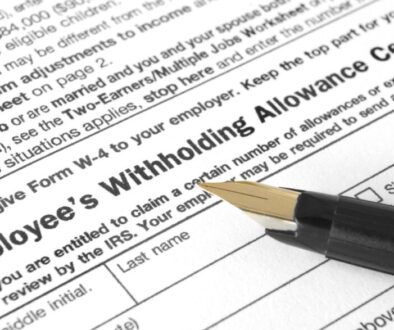Top 5 Tax Issues for Small Businesses
Top 5 Tax Issues for Small Businesses
Table of Contents
Small businesses are the backbone of the economy and a key driver of innovation and job creation. As a small business owner, it’s important to familiarize yourself with the top five tax issues that could potentially have a major impact on your business. Knowing these tax issues and how to handle them can help you ensure that you’re compliant, save time, and reduce the amount of taxes you owe. From understanding the rules and regulations that apply to your business to taking advantage of tax credits and deductions, there are several issues small business owners should be aware of when it comes to taxes.
Understanding the rules and regulations that apply to your business
As a small business owner, it’s important to not just understand the basics of how taxes work in general, but also how the rules and regulations that apply to your business will affect your tax return. There are a number of factors that go into calculating taxes for your business, such as your taxable income, business expenses, and filing status.
Your taxable income is different from your gross income, and it’s what you use to determine what percentage of your income will be taxed. Business expenses are any out-of-pocket costs you incur to run your business, such as travel expenses, advertising costs, or supplies. You can deduct these expenses from your taxable income to reduce the overall amount of taxes you owe. Your filing status determines the tax rate you’ll pay.
Tax credits and deductions
Tax credits reduce the amount of taxes you owe dollar for dollar, while tax deductions reduce the amount of your taxable income. Unlike what many people think, a deduction is not necessarily good for your taxes. Deductions are often used if you itemize your taxes, while tax credits are claimed on your tax return regardless of whether you itemize or not.
While there are many different types of credits and deductions available to small business owners, some of the most common credits and deductions include:
Tax credits:
- Child Tax Credit
- Earned Income Tax Credit
- Education Credits
- Health Coverage Tax Credit
- Mortgage Interest Tax Credit
- Retirement Savings Contributions Credit
- Social Security Credit
- Volunteer Firefighters Tax Credit
Tax deductions:
- Auto and travel expenses
- Business Insurance
- Capital Expenses
- Charitable contributions
- Child Care
- Computer / Software
- Depreciation
- Employee Health Insurance
- Home Office
- Interest
- Pension and retirement plans
- Rent or mortgage
- Repairs and maintenance
- Self-Employed Health Insurance
- State and local taxes
- Taxes paid
- Tax planning strategies
Tax filing deadlines
As with anything, there are certain deadlines you must meet when filing your taxes. Some of the most important tax filing deadlines that every small business owner should be aware of are:
Tax Return Filing Deadlines: Tax day is April 15th of each year, but that doesn’t mean you have to file your taxes on that day. You can file your taxes as early as January 1st (for the previous year) or as late as October 15th (for the current year).
Self-Employed Tax Deadlines: If you’re self-employed, you might be required to pay quarterly taxes throughout the year rather than waiting until April 15th. Make sure you file these quarterly taxes on time to avoid facing penalties.
Payroll taxes
If you have employees working for your business, you also should pay attention to payroll taxes. Although you may have heard that payroll taxes are just another way for the government to take money out of your pocket, there are a number of tax credits and deductions that can help offset the amount you owe. The most common payroll taxes small business owners must pay attention to are:
Social Security Tax: All employees, regardless of their income, are required to pay a percentage of their wages towards Social Security, which is calculated based on income and the number of employees.
Medicare Tax: In addition to Social Security Tax, employees who earn more than $200,000 per year must also pay a percentage of their income towards Medicare Tax.
Federal Income Tax: You also will pay a percentage of your employees’ wages towards Federal Income Tax based on their income and the number of employees. This is in addition to any taxes you’re required to pay for yourself as the business owner.
Tax planning strategies
Tax planning is an important aspect of running a successful business. Unlike tax avoidance (which is trying to avoid paying taxes), tax planning is a strategy that involves planning for taxes to reduce the amount of money you owe. There are several different tax planning strategies small business owners can employ to reduce their taxes, but the most important thing is to be aware of the different tax issues that could impact your business and come up with a strategy to handle them.
For example, if you find that you’re paying too much in taxes because you’re not taking advantage of certain tax credits or deductions, you can use tax planning strategies to reduce the amount of taxes you owe. Another important aspect of tax planning is to make sure you have a strategy in place to make sure you stay compliant with all tax rules and regulations that apply to your business. Working with a tax professional can help you to ensure that you’re up to date on the most recent rules and regulations.
Tips for handling the top five tax issues
These are just a few examples of the different tax issues that could affect your business. Depending on the type of business you own, there are several other tax issues you may have to deal with. The best way to navigate these issues is to make sure you’re informed about the rules and regulations that apply to your business and make sure you’re compliant. You can also take advantage of tax credits and deductions to reduce the amount of taxes you owe, but you’ll first need to make sure you’re filing on time and staying on top of your finances.
Don’t miss tax tips delivered to your inbox:




